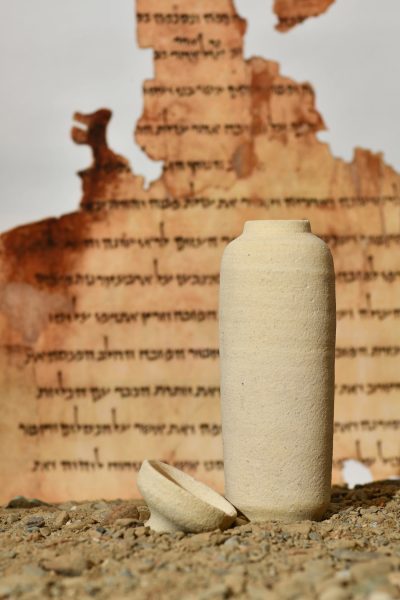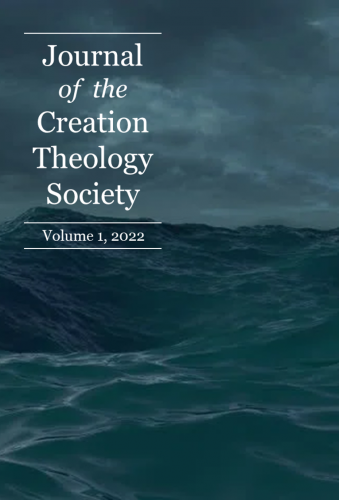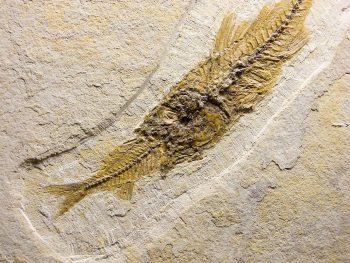The board has decided to temporarily name a steering committee in lieu of the presidency, which will consist of three officers of the executive board, namely Steven W. Boyd, Dustin G. Burlet, and Stephen Mapes.
Tag: Creation Theology Society

Origins Conference Registration Open
Registration is now closed for the Origins Conference held at Brookes Bible College, St Louis, MO July 22–23. Thank you to everyone who participated in helping make this event a success.

Creation Matters, Because Christ Is Risen!
For the believer in Christ, an interest in creation studies must not stop at creation but must lead us to our Savior and to the hope of a new creation that we find in Him. When we consider the events of our Lord’s passion, leading to His death and resurrection for sinners, we find some amazing connections with the early chapters of Genesis, particularly with areas that we might be tempted to skip over quickly in the text: plants and gardens.
In the last days of Christ before His crucifixion and victory over the grave, the fig (Gen 3:7; Matt 21:18–22), olive (Gen 8:11), and grape (Gen 9:20–21; Matt 26:29; John 15:1–8) — plants named or implied in Genesis 1–11 — all make an appearance. A barren fig tree is cursed (Matt 21:18–22), Christ goes to the Mount of Olives (Matt 26:30), and says that the next time He drinks the fruit of the vine will be with the disciples in His Father’s kingdom (Matt 26:29). The vine itself illustrates a lesson His disciples will need brought back to their remembrance: that, like branches, their life is dependent on Him, the true vine (John 15:1–8).
The setting of the Garden of Gethsemane (meaning ‘olive oil press’) with Christ’s agony and betrayal by Judas (Matt 26:36–46), also recalls the first garden where disobedience led to misery and death in the world (Gen 2:8–3:24).
A crown of thorns, a reminder of the ground cursed on account of man’s disobedience (Gen 3:17–19), pierces the head of our precious Savior (Matt 27:29). Whereas death and a cursed world resulted from man taking from the forbidden tree (Gen 2:15–17; 3:17–19), Christ willingly goes to the cross, thus being fastened to a tree, where He becomes a curse for our sake and dies in our place that we may receive God’s blessing (Gal 3:13).
Our Lord’s body then rests in a garden tomb (John 19:41), from which He emerges alive and which the women and disciples find empty on the first day of the week (John 20:11-18). They see Him, sorrow gives way to joy, and they become witnesses to this glorious reality (Luke 24)!
In all these examples, plants or places associated with them serve as illustrations or settings for the reality that our God became a man to enter this world He had created, to defeat sin and its consequences through death and resurrection. The resurrection of Christ, as Paul argues in 1 Corinthians 15, is what ensures that any of our labors that are done in the Lord are not in vain. Such labors include a faithful study of His Word and His world that encompasses but is not limited to creation. Because Christ is risen, creation matters–and we have a hope in a new creation!

Spring Symposium 2024 Video
Dr. Robert Cole presented the topic “The Biblical Theology of מין/’Created Kind’ in the Hebrew Bible” for our online CTS Spring Symposium 2024 on Thursday, March 21. Sixteen people logged on to participate in the symposium. For those who could not join us, the video for the symposium is available at the following link. In addition an unedited text of the Chat for the symposium is available in a TXT document.
We plan to offer another online symposium in the Fall. Please watch for announcements on our CTS website (Blog) as well as for our occasional MailChimp emails providing information about such events.

Abstracts Due for Origins Conference 2024
Hi, everyone!
Sitting at our breakfast table and looking out the window at our backyard, watching the robins hopping around our silver maple doing their thing, I am reminded of that old saying, “The early bird catches the worm.” Well, it’s time to remind you all to be early birds and submit your proposals for the 2024 Origins Conference. The deadline for submissions is March 31 and the instructions for writing your proposals are at this link.
You’ll be getting something a lot better than robins get. You’ll be getting the opportunity—subject to editorial board review—to present your ideas to the creation community gathered for the 2024 Origins Conference. And subsequently, the possibility that, after your papers have been peer-reviewed, to have them published in the Journal of the Creation Theology Society 3.
So, what are you waiting for? There’s room for only so many presentations at the conference. So, be that early bird and get your proposal in!
Dr. Boyd
Steven W. Boyd, M.S., Th.M., M.Phil., Ph.D.
Executive Editor of the Creation Theology Society;
Research Professor of Old Testament and Semitic Languages;
Director of the Cataclysm Chronology Research Group

Spring Symposium 2024
Dr. Bob Cole (CTS board member) will present The Biblical Theology of מין/Created Kind in the Hebrew Bible as the topic in our CTS Spring Symposium 2024. Mark the date and time in your calendar: Thursday, March 21, 8:00 PM (EST).
The symposium will be conducted on ZOOM (link plus pass code 980922). You may invite interested friends by giving them the information directly or refer them to this blog post. Please do not publish this information on any other website or on social media.

Fall Symposium Video
On the evening of December 8 CTS hosted its first Online Fall Symposium with twenty-one CTS members logging in. The topic for our symposium was “The Biblical Flood in the Literature of the Dead Sea Scrolls” led by our President, Dr. Jeremy Lyon. Wipf and Stock published Jeremy’s Qumran Interpretation of the Genesis Flood in 2015. If you have an interest in this topic, this book provides very helpful translations, descriptions, analyses, and discussions of four scrolls: the Genesis Apocryphon (1QapGen), a Genesis pesher (4Q252), a fragment of an admonition based on the Flood (4Q370), and a fragment of a paraphrase of Genesis and Exodus (4Q422).
The Fall 2022 Online Symposium video can be accessed via this link. In this way, those of you who were unable to join us can still hear the presentation and the subsequent Q&A.
Watch for announcements regarding future online symposia. We plan to offer at least two each year — one in the Fall and one in the Spring. The symposia provide only members the privilege of live-stream watching and participation. Every active member receives a Zoom invitation ahead of time so they can join the symposium. Post-symposium access to the videos are available to anyone through the CTS website.

JCTS Issue 1 in Mail
Issue 1 of the Journal of the Creation Theology Society has been printed and is in the mail to all our members! Click this link to go to the Journal page for the latest information and for a free download of a sample article.
Soon we will announce a Members Only page where members can access the digital version.

JCTS First Issue Published
The premier issue of the Journal of the Creation Theology Society has been published! For a first issue, this one is packed! — over 200 pages! Thanks to the labors of our Senior Editor Steve Boyd and his staff (Lee Anderson and Doug Smith) CTS members will soon be receiving their hard copy of JCTS in the mail (snail mail).

In the near future we will establish a members-only page on our website so a digital copy can be viewed. Stay tuned for that future announcement, right here on the CTS blog.
In addition, we will soon be making it possible for anyone to purchase a digital copy of CTSJ articles or the full issue online.

Origins Conference 2022 Registration
Registration for Origins Conference 2022 now available online at this link.